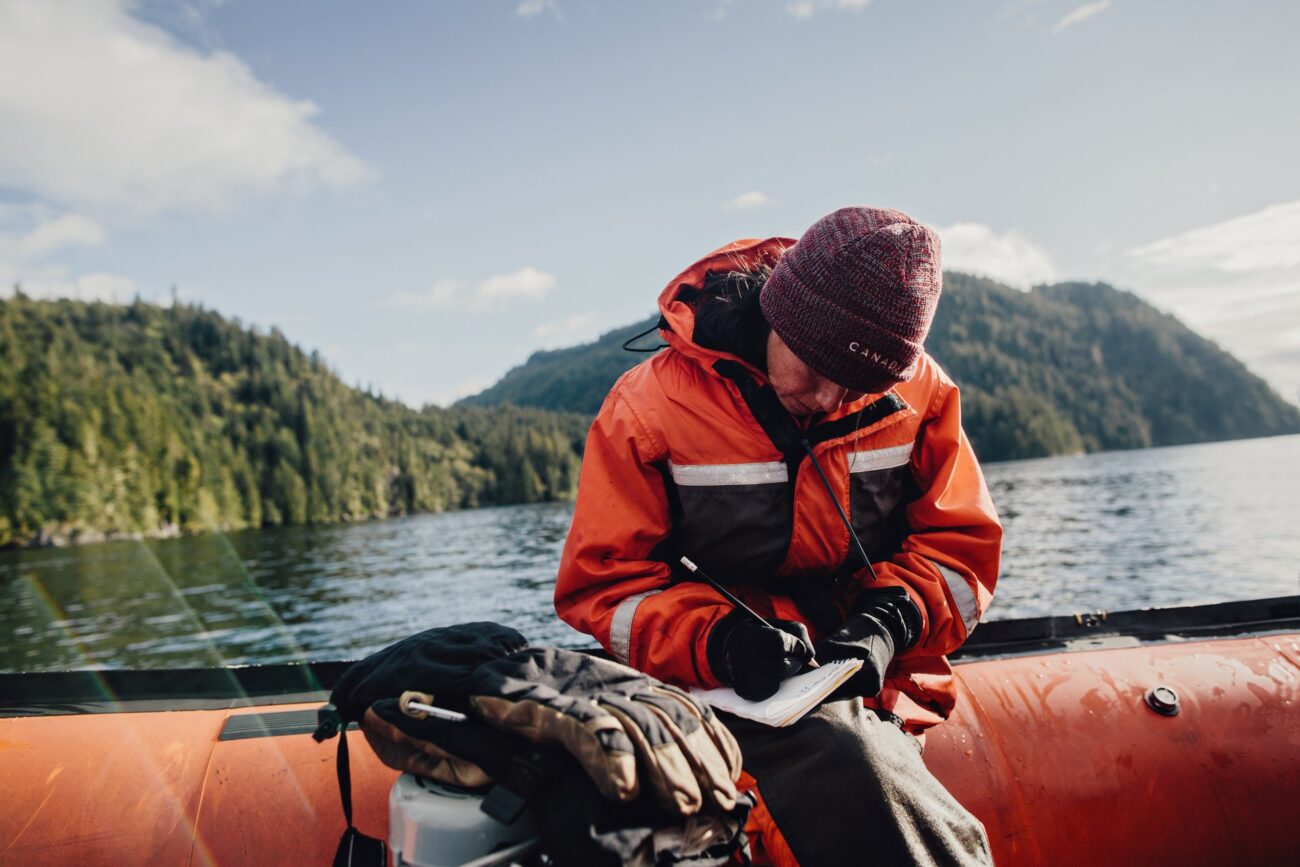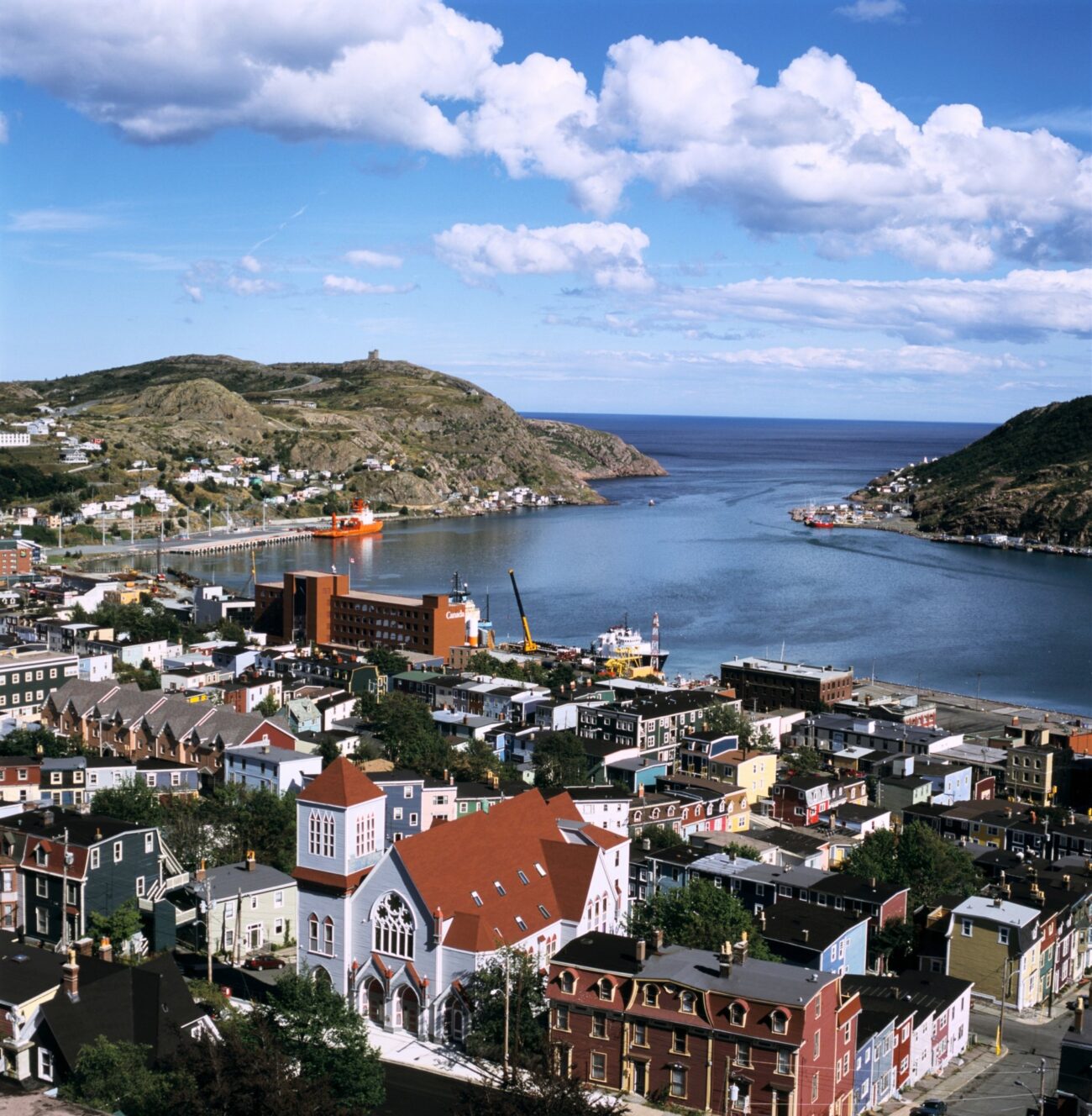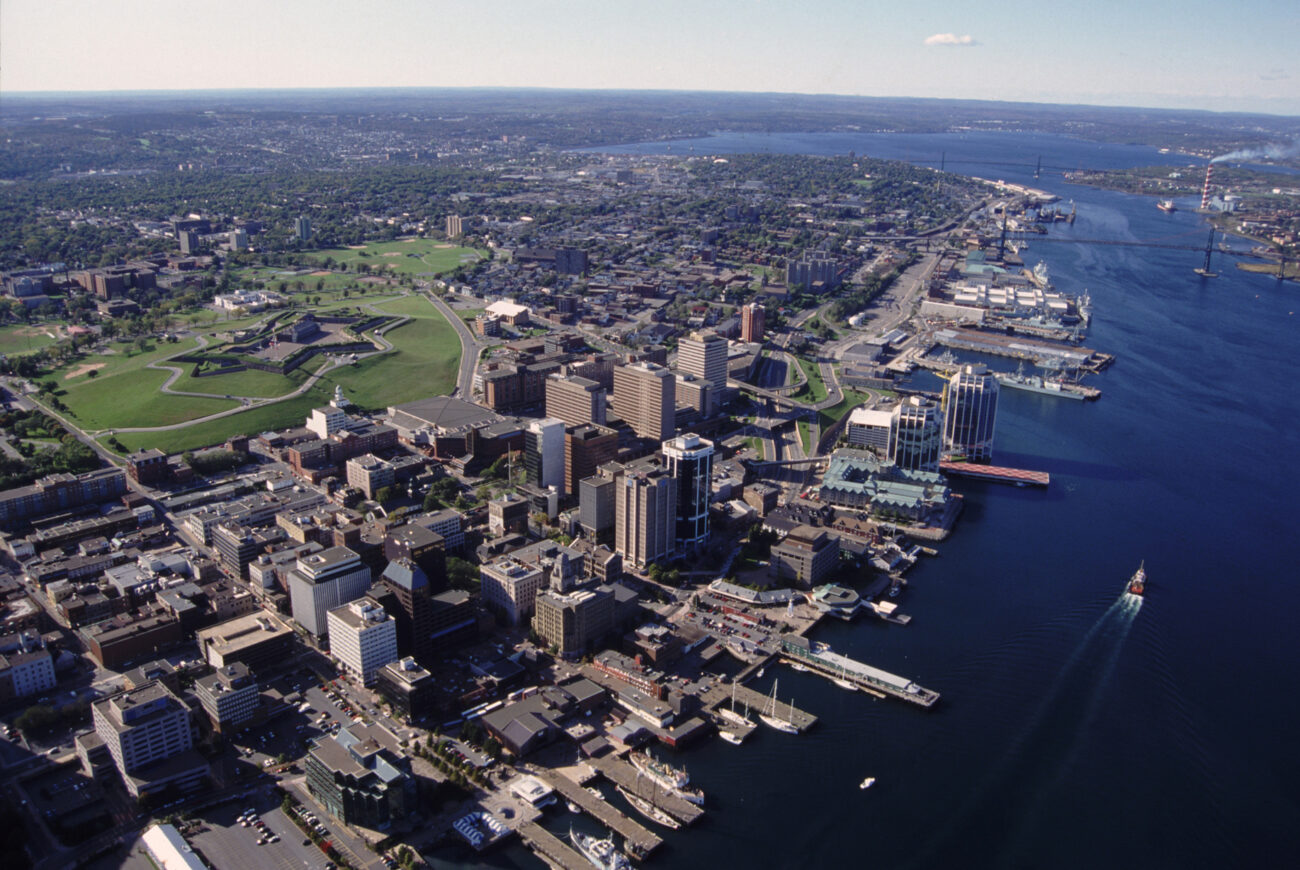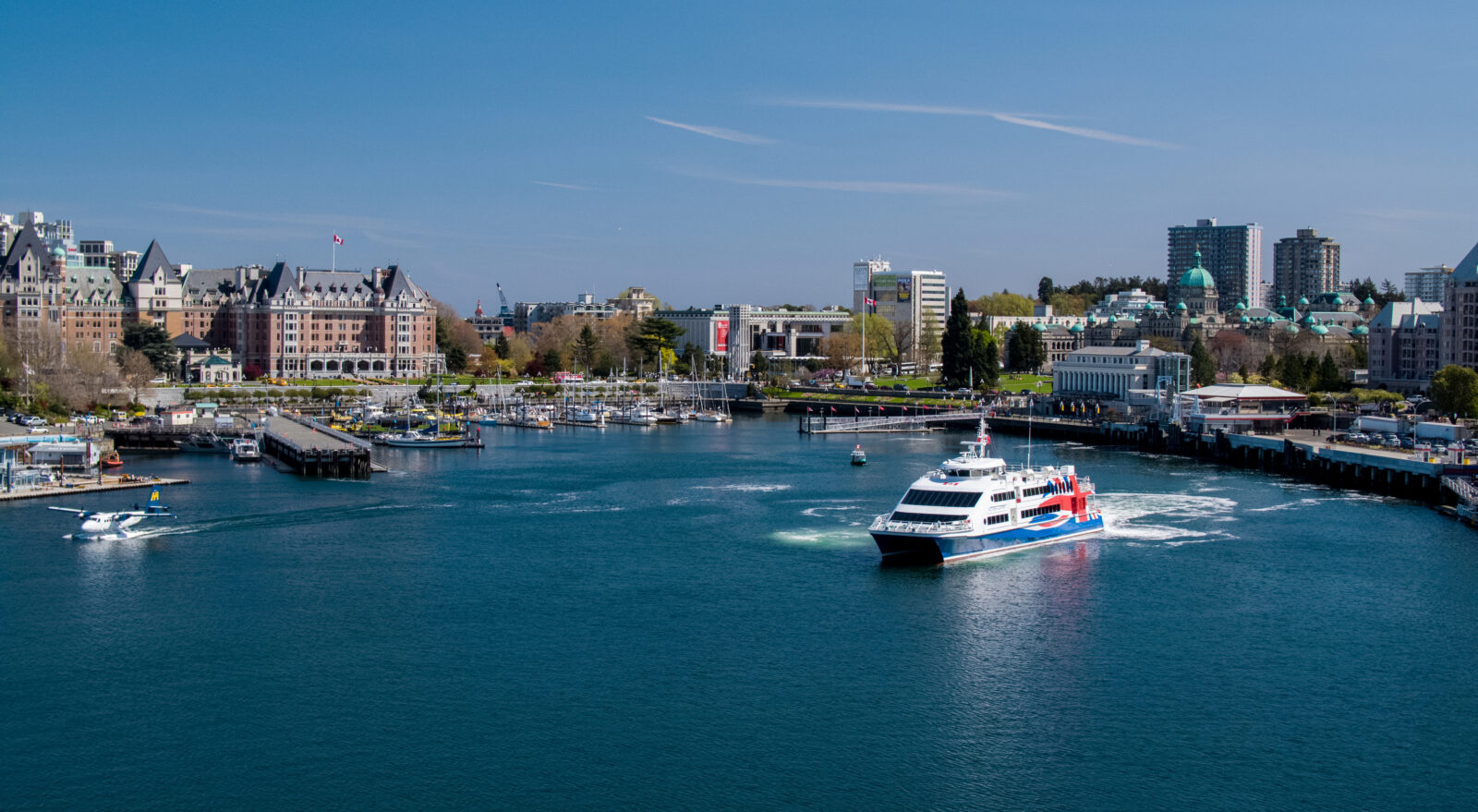Canada is well-known as an ideal place to host events — the country is home to cutting-edge convention facilities that are in the heart of cosmopolitan cities and nestled on the edge of unbeatable natural beauty. The country’s variety of desirable destinations, combined with its easy accessibility, affordability and welcoming spirit, have long made Canada an attractive option for events.
The beauty of Canada, however, is only half of the appeal. It is Canada’s innovation and leadership in several key sectors — including the oceans sector — that really separates Canada from the competition.
Supercluster of seas
Contributing CAD$36B annually in GDP and employing 350,000 professionals, Canada’s ocean sector is quickly evolving thanks to both established industries, like offshore oil and gas exploration and production, and emerging ones, like marine renewables.
Positioning Canada to be a world leader in the blue economy — which supports middle-class jobs and ensures sustainable ocean industries — the Government of Canada has developed the Blue Economic Strategy, which will create new jobs and modernize ocean sectors in many coastal communities.
A key part of this strategy is Canada’s Ocean Supercluster, an industry-led network driving cross-sector collaboration, which aims to tackle challenges shared across multiple ocean sectors, and seeks to grow the country’s ocean economy from $20B to more than $30B by 2050. With the help of a combined investment of more than $300 million from public and private sources, it’s estimated that Canada’s Ocean Supercluster will create more than 3,000 jobs and contribute more than CAD$14B to Canada’s economy in the first 10 years alone.
This is merely the tip of the iceberg when it comes to Canada’s leadership in the oceans sector. But why does this matter to corporations and associations looking to host events?
Organizations that meet in Canada will have access to top-notch research facilities for site tours and hands-on experiences; research, academia and industry on-location, meaning access to local speakers and keynotes, allowing organizations to save on transportation costs; and an ecosystem of industry support and interest in the subject, which means more potential delegates and local attendees.
Here, we’ll take a look at four of Canada’s ocean hubs and why they’re making waves in the sector and attracting events.

Outstanding ocean innovation
Located on the edge of the Pacific Ocean, in British Columbia, Victoria draws international events focused on ocean technologies and research. Aside from the stunning scenery that surrounds it, a few of Victoria’s key selling points include the city’s specialization in ocean imaging and data collection, the destination’s leadership in sustainability and the plethora of cutting-edge ocean institutes that have their home there.
Of the thousand-plus ocean and marine companies located in British Columbia, a staggering 70% are located on Vancouver Island, where Victoria is the largest city. A few companies calling Greater Victoria home include ASL Environmental, Barnacle Systems (BRNKL), Cascadia Seaweed and Open Ocean Robotics, a cleantech solution to ocean data collection that works with solar-powered autonomous boats, which provide real-time information to help protect the oceans.
Victoria’s wealth of ocean-focused companies and initiatives have helped attract events like the Association for the Sciences of Limnology and Oceanography Summer Meeting, the Canadian Institute of Marine Engineering’s MARI-TECH in 2018, as well as the North Pacific Marine Science Organization PICES-2019 Annual Meeting in 2019.
As Miranda Ji, Vice President of Sales, Business Events Victoria, puts it: “Victoria’s location as a coastal and island community on the Pacific Ocean lends itself to be a growing hub for marine and ocean innovation. Due to our strength and abundance of marine industry businesses and research organizations, we have attracted various conferences, such as the Ocean Optics Conference, in this sector.”
The seaside city also features post-secondary and research institutions like the Institute of Ocean Sciences, the Centre for Ocean Applied Sustainable Technology (COAST) and the University of Victoria’s Ocean Networks Canada (ONC) initiative, which has deployed nearly 900km of underwater cables off the west coast of Vancouver Island. By working with cabled observations, remote control systems and interactive sensors, the initiative’s research and data collection project will allow for evidence-based decision-making on ocean management and environmental protection.
Such work is state-of-the-art, and impresses even the most accomplished of specialists.
“As Executive Director of The Oceanography Society, I was especially pleased to have had the opportunity to visit the Ocean Network Canada (ONC) Headquarters in Victoria a few years ago,” says Jennifer Ramarui. “I have followed the work of this team over many years…however, visiting the ONC Headquarters brought their work to life for me…Observing this group in action, combining cutting-edge technology with scientific expertise to provide valuable information for decision-makers and the general public, was incredibly inspiring.”
Sustainability specialization
Located on Canada’s West Coast, Vancouver has become known as a pioneer in the natural resources sector, particularly in ocean sciences.
A leader in hosting sustainable events — home to the world’s first and only double LEED Platinum-certified convention centre — and positioned right on the Pacific Ocean, it makes sense that Vancouver was chosen to host the International Marine Protected Areas Congress (IMPAC5) in 2023.
The city’s ocean specialty, however, is not limited to ocean conservation. The Port of Vancouver is Canada’s largest port, which may explain why the International Association of Ports and Harbors chose the city to host their World Ports Congress in 2022.
When it comes to elevating events, there are plenty of fascinating facilities in Vancouver that groups can visit. These include the Pacific Science Enterprise Centre, the Oceanwise Micro-Plastic Research Laboratory, and the Metro Vancouver Water Treatment Plant. Groups can also learn from the Tsleil-Waututh’s Treaty, Lands and Resources Department, who are working with the Vancouver Fraser Port Authority to restore eelgrass, as part of the port’s Habitat Enhancement Program.

Innovation ecosystem
St. John’s, in Newfoundland and Labrador, focuses heavily on oceantech and innovation, and is home to several advanced post-secondary institutions and world-class research and training facilities. It is no wonder, therefore, that St. John’s has long been considered a “City of Ocean Excellence.”
Memorial University is one such institution, and it is known around the world for its expertise in marine engineering. This specialization extends across the city, with a particularly significant concentration of facilities that focus on harsh marine environments. This includes the university’s Marine Institute, which houses the world’s longest flume tank, used to carry out performance evaluations.
Also at the Marine Institute, you’ll find two of the world’s five full-motion ship’s bridge simulators, while the National Resource Council’s Ocean, Coastal and River Engineering Research Centre is home to one of the longest ice tanks on the planet.
Canada’s Ocean Supercluster is also giving companies and institutions in the area a serious development boost to help drive ocean solutions. For example, the CAD$3.1M Rutter Internet of Things (IoT) Project, led from St. John’s, will offer remote monitoring as a managed service with specialty radar system data acquisition, as well as cloud-based storage and analytics in the process, creating new jobs.
This year, the city will welcome a few major ocean-related events, including Innovate Canada (Destination Canada Business Events’ signature event), World Aquaculture Society North America 2022, and the Arctic Regional Hydrology Commission Conference.

World-class resources
The East Coast city of Halifax attracts intentional organizations looking to leverage the city’s extensive knowledge in areas like ocean tech acoustics, fisheries and aquaculture, shipbuilding, and ocean observation. Not only does Halifax have one of the world’s deepest harbours, the city also has the claim of being home to Canada’s largest centre for oceans research: the Bedford Institute of Oceanography, comprised of roughly 600 scientists, researchers and engineers.
This, however, is not the only best-in-class facility that events groups can leverage to elevate their event agenda. The Aquatron Laboratory, at Dalhousie Univeristy, is Canada’s largest university aquatic research facility. Considered by many to be one of the best in the world, the lab boasts six large tanks, holding a combined volume of more than 2000m3, as well as several smaller tanks.
It’s facilities and resources like these that draw events to Halifax, including, OceanPredict19 2019, H20 Conference 2022, Ocean Frontier 2022, and the Marine Technology Society (MTS) and the Institute of Electrical and Electronics Engineers (IEEE)’s OCEANS 2024, which will be held at the Halifax Convention Centre.
Anticipated to bring 1,500 delegates from across the world, OCEANS 2024 will showcase the influence of Nova Scotia’s thriving ocean-related industries and the progress being made by companies leading in areas like underwater acoustics, marine communication and navigation, and autonomous and remotely operated underwater vehicles.
For impartial insights, inspiration and introductions, planners can contact the Destination Canada team. Virginie De Visscher, Senior Director of Business Development, Economic Sectors, Destination Canada Business Events. Devisscher.virginie@destinationcanada.com
“The ocean engineering and technology community in Halifax and Atlantic Canada is stronger and larger than it has ever been,” says Christopher Whitt from the Canadian Atlantic Section of IEEE. “2024 is the perfect time to bring OCEANS back to Canada’s ocean hub.”
Building expertise
With hubs from coast-to-coast specializing in sectors like ocean technology, shipbuilding and marine equipment, and aquaculture, Canada offers visiting associations a wide network of resources to pull from when organizing and hosting oceans-related events.
Just as Canada’s regional innovation systems are forming collaborative environments for companies, institutions and organizations to come together to share knowledge and boost ideas, visiting associations are receiving the same welcoming and inspiring atmosphere when hosting ocean-related events in Canada’s specialized hubs —where they are able to tap into a city’s expertise to elevate their event, making it more memorable and impactful for delegates.
 Nestled on the shores of the Pacific Ocean, Victoria is a natural draw for international events. (©Clipper Vacations)
Nestled on the shores of the Pacific Ocean, Victoria is a natural draw for international events. (©Clipper Vacations)